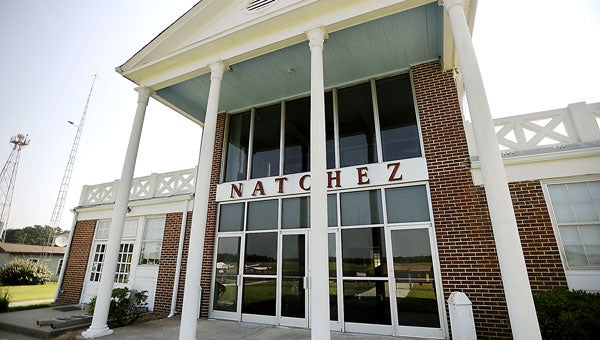Natchez native to step down as director of Baton Rouge’s Celtic Media Centre
Published 12:01 am Monday, June 5, 2017
NATCHEZ — In January 2016, Patrick Mulhearn watched as Louisiana Gov. John Bel Edwards gave a speech at his inaugural ball at Celtic Media Centre in Baton Rouge.
Later that year in August, the Natchez native watched as the governor stood in the exact same spot and hugged an evacuee who was one of thousands to flee floodwaters in Baton Rouge and seek shelter at the 150,000-square-foot film studio facility that Mulhearn manages.
“I remember it vividly,” he said.
That moment was one of several like it over the course of the weeks the studio transformed into a small town for evacuees that renewed Mulhearn’s faith in people.
“I honestly did feel like everything happens for a reason, even the bad stuff,” he said. “The outpouring of love that everyone in Baton Rouge showed and the way that people helped each other, it renewed my faith in people and showed the potential that Baton Rouge has.”
The experience also helped lead Mulhearn to the decision to step down as executive director of Celtic Media Centre June 30 to pursue prospects he hopes create economic development and opportunities, particularly in the film industry.
“I’ve been here since 2009, and I think my job has become more about politics than production, because the film industry revolves around the tax incentives,” Mulhearn said.
Filmmaking in Baton Rouge slowed as Louisiana changed its filmmaking tax incentive rules in 2015. This year, the Legislature has taken a crack at fixing the incentive program to hopefully boost the once-thriving film industry in Louisiana.
At the same time, Mulhearn said, Louisiana State University is working to establish a screen arts degree program, and Mulhearn believes film industry professionals can work with students to provide training and future opportunities for film in Baton Rouge.
An idea Mulhearn and others in the industry have talked about is tentatively called the Purple and Gold Film Fund. As of now, Mulhearn said the it is just a concept, but the project would invest in local film productions and train LSU students in film. Profits would go back to the LSU foundation, meaning the foundation would basically be an executive producer.
The program, Mulhearn said, would hopefully enable him to make a bigger impact on Baton Rouge.
“I can only do so much from behind my desk renting stage and office space,” he said.
The flooding in Baton Rouge, Mulhearn said, gave him a first-hand look at both the resilience of Baton Rouge and the issues also facing the city.
“For me, personally, it just felt like more than a coincidence,” he said. “It kind of opened my eyes to the fact that Louisiana has bigger issues. Like in New Orleans, Katrina didn’t so much cause the extreme poverty as it exposed it. The same was true for me during the flooding in Baton Rouge. Professionally, I realized that working in politics and policy and economic development, I want to do more to create jobs and help more people.”





